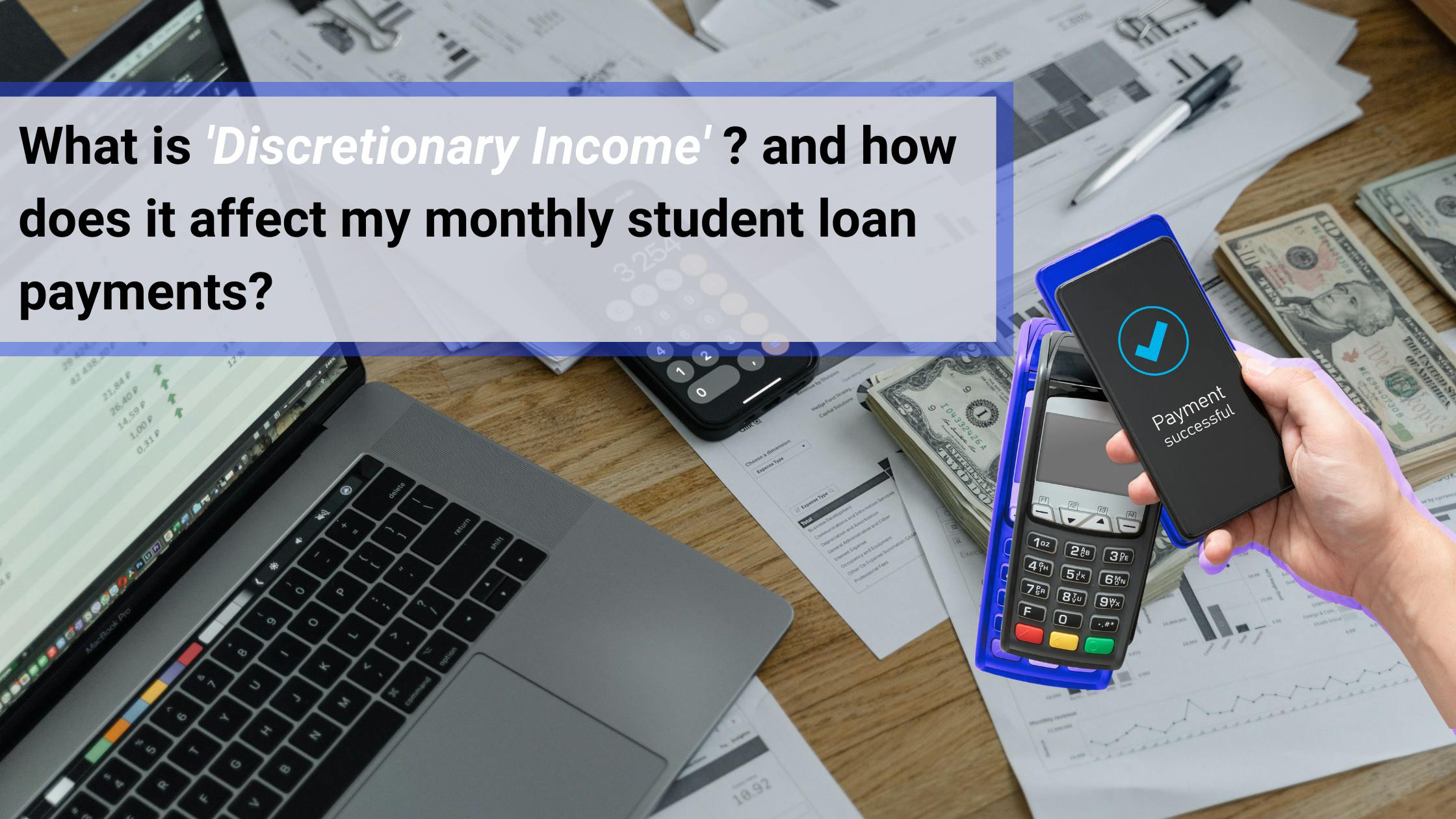What is 'Discretionary Income'? How does it affect my monthly student loan payments?

Welcome to our borrower-centric blog, where we put your student loan concerns at the forefront. We understand that navigating the complex world of student loans can be overwhelming, and we're here to make it approachable and educational. In this blog, we'll dive into the concept of discretionary income, a key factor in determining your student loan payments, and share expert insights on how to optimize your payments based on your unique situation. At LoanSense, our mission is to provide trustworthy student loan education to borrowers. We are serious about putting your student loan concerns at the forefront and educating borrowers about their student loan debt to make it more manageable.
Understanding Discretionary Income
Discretionary income might sound like a daunting term, but we're here to simplify it for you. It's the portion of your income that the government considers beyond what you need for basic living expenses. These basic needs are determined based on the federal poverty line for your specific location. The concept of discretionary income varies according to different income-driven repayment plans, but we'll walk you through the common factors.
How 'Discretionary Income' Affects Your Payments
Your student loan payments, when based on income, are primarily determined by your discretionary income. Here's a breakdown of how this works: The government sets a poverty line by the state and family size. Then, the Department of Education determines the percentage of the poverty line a borrower can earn that isn't counted towards the student loan payment, such as 150% to 225% of the poverty line. The 150% or 225% of poverty is subtracted from your earning and then a percentage is take from the difference to account for your annual payment. Your annual payment is then divided by 12 to calculate your monthly payment.
Importantly, this payment remains the same regardless of the total amount you've borrowed for your education. This approach ensures that payments are income-driven, providing relief for borrowers who may be struggling to repay their loans within a traditional 10-year period.
Optimizing Your Payments
Now that you understand the basics, let's discuss how you can optimize your student loan payments. Whether you're a W-2 employee or self-employed, there are strategies to help you reduce your adjusted gross income (AGI) and, consequently, lower your monthly payments. Remember, this is all within the bounds of legality and transparency.
For W-2 Employees:
- Show Proof of Income that is best for you: If you've earned more in the current year than the previous year, consider using the lower-income year to calculate your AGI. This can lead to reduced monthly payments.
- Leverage Periods of Unemployment: If you've been between jobs or earned $0 income during a specific time, request your servicer to recalculate your income based on that period, resulting in lower payments.
For Self-Employed Individuals:
- Deduct Business Expenses: Self-employed individuals have the advantage of deducting various expenses, such as a home office, to reduce their adjusted gross income. This will reduce the amount of income the government uses to compute your monthly student loan payment in the discretionary income formula.
- Navigate Income Changes: If your income fluctuates, strategically report your income during lower-earning months and years to minimize your adjusted gross income, thus lowering your monthly payments.
Additional Strategies
- Marriage Tax Filing: Consider filing your taxes separately from your spouse to exclude their income from your monthly student loan payment, which may lead to reduced payments. Note- this isn't right for everybody. It depends on if your spouse also has student loans and how much of a balance in student loans they have.
- Dependents: If you have dependents, the poverty line increases, reducing how much is available to pay for your student loan as per the discretionary income formula.
Conclusion:
At LoanSense, we're committed to helping you navigate the complexities of student loan repayments. Our borrower-centric approach aims to make your journey more approachable, educational, and stress-free. By understanding discretionary income and the factors that affect your payments, you're well on your way to mastering your student loan repayments. Whether you're a W-2 employee or self-employed, there are legitimate ways to optimize your payments and gain financial relief.
If you need personalized assistance or have questions about your specific situation, our experts at LoanSense are here to help. Visit our website at www.myloansense.com to learn more about our services and get in touch. You may also check out our YouTube Channel for more informative discussions and topics related to student loan debt.
Any inquiries can be made to loanhelp@myloansense.com
Need help with what options are best for you? Get in touch with us.
Get the latest Student Loan Pro tips. We'll give you the best strategies and keep you up-to-date on loan programs. We keep our communications short and helpful. Sign up for our weekly protips now!